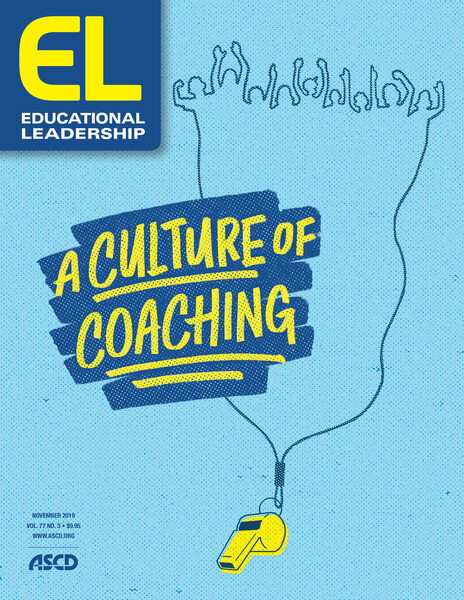In his much-viewed 2017 TED Talk on coaching, the surgeon-writer Atul Gawande noted that there are two views on how professionals get better at what they do. The first, the traditional view, is that you go to school to be trained in a particular field and then "make your own way" with the expertise you have, content to "manage your own improvement." The second view, which comes from the world of sports, is that you "are never done" growing and that "everybody needs a coach" to hone their skills and develop their game.
Long deemed impractical or superfluous outside of sports, this second option is becoming increasingly popular in a variety of industries—prominently including education. This shift may be related to another point Gawande makes in his talk. Coaching, he suggests, is needed to help professionals improve "against the complexities they face." As a field grows more complex, that is, workers are more in need of fine-tuned feedback and expert guidance.
In this respect, it shouldn't be surprising that coaching has gained traction in schools. As Matthew A. Kraft and David Blazar note in a recent article on their meta-analysis of research on instructional coaching, teaching today is a uniquely complex profession, comprising roles ranging from "content expert, curriculum developer, and pedagogue, to social worker, psychologist, mentor, and motivator." To develop this "interrelated skillset," teachers need something more than the traditional, make-your-own-way approach to improvement.
Indeed, in their study, Kraft and Blazar found that coaching has significant positive effects on both teachers' instructional practice and student achievement—comparable to the "difference in performance between a novice teacher and an experienced veteran." What makes coaching so impactful, they write, is its "specific attention to teachers' core classroom practices"—that is, to "the complex and dynamic reality" they face in their day-to-day work.
For school leaders looking to implement coaching programs, however, there's an important catch: Kraft and Blazar emphasize that coaching doesn't necessarily "scale" well. "Looking at the size of coaching programs," they write, "we find that the average effectiveness of the coaching program declines as the number of teachers involved increases. …" This suggests to Kraft and Blazar that key components of effective coaching—such as coaching quality, adequate funding, programmatic flexibility, and teacher engagement—may be jeopardized as programs expand.
This, in effect, is a big part of the current reality of coaching in schools that this issue of Educational Leadership seeks to address. Coaching—both at classroom and leadership levels—is increasingly seen as a critical strategy to improve practice and outcomes in schools. Yet school leaders and teachers alike are also recognizing that it can be hard to get right, especially when coaching programs grow beyond the initial, targeted stages and become more institutionalized.
In different ways, all the articles in the issue address this dynamic. They explore how schools can build a wider "culture of coaching" without diluting or subverting the elements that make coaching attractive—and effective—in the first place. In the opening article, for example, influential coaching expert Jim Knight writes on the importance of protecting teachers' autonomy in coaching arrangements in the face of schools' tendency to presume a need for greater top-down control.
Taking a different angle, Elena Aguilar, another important voice in school coaching, highlights the structural elements schools need to have in place—from vision statements to hiring criteria to relational expectations—to ensure the integrity of coaching programs. "It helps to stay anchored in the potential of coaching," Aguilar advises. "When we keep that potential in mind, we can amass the resources, capacities, and courage required to design effective coaching programs."
We hope you'll find ways throughout this issue to honor that potential and foster educators' growth amidst complexity.







